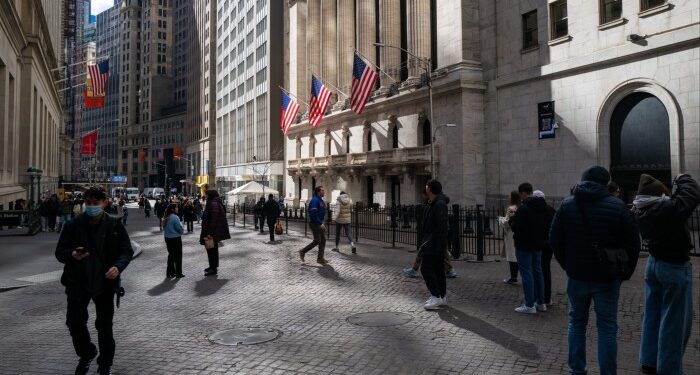Unlock the Editor’s Digest for free
Roula Khalaf, Editor of the FT, selects her favourite stories in this weekly newsletter.
The writer is a senior fellow of the Hoover Institution and a professor of finance at Stanford Graduate School of Business
Private equity firms want more retail investors and the democratisation of their asset class. They promise higher returns and better capital allocation. Over the past 20 years, the annualised return for US-focused private equity (excluding venture capital) is 14.8 per cent, according to data firm Preqin. So the firms have a clear pitch to investors.
Proponents also argue that retail access could address the looming retirement savings crisis while fostering competition in financial products. More retail investment would also mean more funding for private equity’s role in financing businesses, funding start-ups and restructuring struggling companies. The US economy thrives on private markets that allocate risk capital to high-growth ventures.
So private firms are lobbying to expand the pool of available investors beyond institutions and wealthy individuals. The Securities and Exchange Commission chair nominee, Paul Atkins, supports market-driven solutions and a lighter regulatory touch. His leadership could accelerate efforts to loosen restrictions on retail access to this complex, opaque asset class.
If mutual funds, exchange traded funds and real estate investment trusts have democratised other asset classes, why shouldn’t private equity be next?
The answer: because it comes with serious risks. Private equity needs patient, long-term capital, free from short-term public market pressures. Opening the floodgates to retail capital introduces liquidity demands, shorter investment horizons and regulatory scrutiny.
Regulations such as the Employee Retirement Income Security Act and securities laws exist to shield retail investors from illiquidity and leverage risks. Private equity funds are currently not subject to Erisa unless retirement plan investments account for more than 25 per cent of total assets. More retail money could see funds cross this threshold.
Unlike public asset managers, private equity also operates with far less transparency. If retail investors gain access, regulators will eventually demand more disclosure, fundamentally reshaping the industry. Enhanced oversight from the SEC or mutual-fund-style governance may be necessary for transparency.
So in trying to attract retail money, private equity risks becoming just another overregulated public market.
Structural risks also loom large. Private equity investments typically span seven to 10 years and require locked-in capital for those periods. Retail money would need to have similar lock-in restrictions or firms could be forced to hold excessive cash reserves or liquidate assets at bad times, suppressing returns and amplifying market instability. During the financial crisis, illiquid assets held in structured investment vehicles had to be dumped in fire sales, triggering a broader meltdown.
The industry seems cognisant of the issue. Blackstone has just raised $1.3bn for a private equity fund tailored to wealthy individual clients. In aggregate, investors in the Blackstone Private Equity Strategies Fund, or BXPE, will only be allowed to pull up to 3 per cent of the fund’s assets in any given quarter before limits kick in.
Yet if there are lock-ins, the longer-term investment horizon might not be suitable for less wealthy retail investors. They also often lack the expertise to assess private equity risks such as a heavy industry reliance on leverage, often exceeding 60-70 per cent debt-to-equity ratios. Pension funds and endowments have teams of analysts to evaluate complex investments. Retail investors do not. The opacity of the risks raises the potential for steep losses, lawsuits and regulatory crackdowns.
Costs are another problem. A common private equity fee structure includes a 2 per cent management fee and a 20 per cent performance fee, significantly higher than mutual funds or ETFs.
The larger question is: do we want another too-big-to-fail sector? If retail-driven private equity funds face liquidity strains, policymakers may feel compelled to intervene — just like they did on some investment funds in other areas in 2008. The larger retail exposure grows, the likelier private equity firms will be treated like banks, subject to stress tests and liquidity rules.
That could choke private equity’s bold, flexible nature into stagnation. Private equity and venture capital drive long-term innovation precisely because they operate outside rigid banking regulations.
If private equity becomes dependent on retail money, bailouts will follow. And when that happens, private equity won’t be private any more. It will be just another arm of the government.
.






